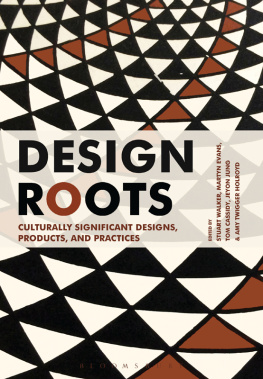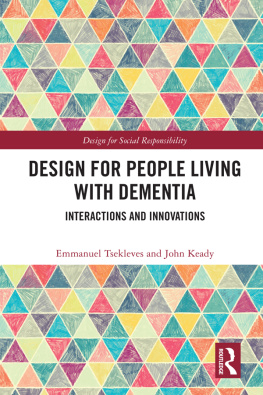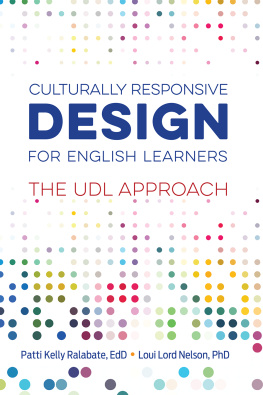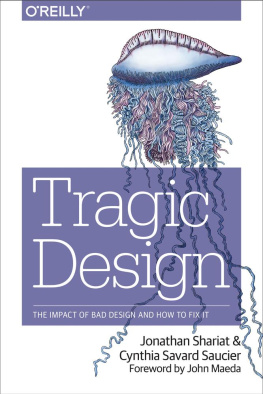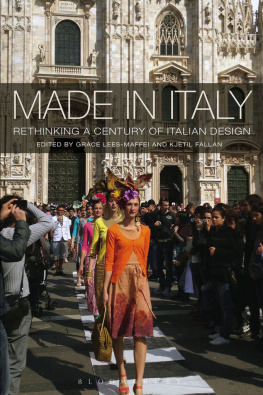Design Roots
Design Roots
Culturally Significant Designs,
Products, and Practices
Edited by
Stuart Walker, Martyn Evans,
Tom Cassidy, Jeyon Jung, and
Amy Twigger Holroyd
Bloomsbury Academic
An imprint of Bloomsbury Publishing Plc

FIGURES
TABLES
Jeyon Jung currently works as a design consultant in design management, service design and design for sustainability. Prior to this, she was a senior research associate in ImaginationLancaster at Lancaster University, working on several AHRC-funded research projects. Broadly, her research explores the strategic use of design in different contexts. She is also keenly interested in the relationship between place, culture, and designed products, and how design can be applied to enhance and sustain this relationship. She completed her Ph.D. in design, exploring the disciplinary core of design as a field of research and practice, in 2015.
Amy Twigger Holroyd is a designer, maker, and researcher. Through her craft fashion knitwear label, Keep & Share, she has explored the emerging field of fashion and sustainability since 2004. Her work has been featured in many books, publications, and exhibitions, from Vogue to Fashion Theory. Following her Ph.D., Amy joined the University of Leeds as a research fellow on the Design Routes project. She is now a senior lecturer in design, culture, and context at Nottingham Trent University. Her monograph, Folk Fashion: Understanding Homemade Clothes, was published by I.B.Tauris in 2017.
Stuart Walker is chair of design for sustainability at Lancaster University, UK where he co-founded a design department and the dedicated design research centre ImaginationLancaster, of which he is a director. He is also visiting professor of design for sustainability at Kingston University, London and emeritus professor at University of Calgary. His distinctive practice-based research explores the environmental, social and spiritual aspects of sustainability. His conceptual designs have been exhibited in Canada, Australia, Italy, at the Design Museum, London, and most recently at Brantwood, John Ruskins house in the English Lake District. His books include: Sustainable by Design, The Spirit of Design, The Handbook of Design for Sustainability (ed. with Jacques Giard), and Designing Sustainability. His most recent book is Design for Life, published by Routledge in 2017. He is the Principal Investigator for the AHRC (UK) funded projects Living Design and Design Ecologies that have informed the making of this book.
Patrick Dillon is a visiting professor in the Faculty of Philosophy at the University of Eastern Finland and emeritus professor at the University of Exeter. He has a first degree in biology and doctorates in economic history and education. He has been a university academic since 1981. His research is in cultural ecology, which is concerned with the interactions between people and their environments that give rise to generative, transactional, relational and co-constitutional ways of knowing and being. Patricks work in cultural ecology is closely allied to research in crafts, design, the arts, and heritage.
Sin Carden is a research fellow in the Centre for Rural Creativity, University of the Highlands and Islands. An anthropologist, her current research interests are Shetland textiles, maker cultures, and the application of the creative industries concept to rural contexts. Past publications include Making space for tourists with minority languages: The case of Belfasts Gaeltacht Quarter (2012) Journal of Tourism and Cultural Change 10(1), Cable Crossings: The Aran jumper as myth and merchandise (2014) Costume 48(2), and The Gaeltacht Quarter of Mural City: Irish in Falls Road Murals (2017) in Visiting Murals: Politics, Heritage and Identity, eds. Jonathan Skinner and Lee Jolliffe, Ashgate. She teaches on UHIs MA in art and social practice.
Disaya Chudasri is a lecturer in the Animation and Game Program at the College of Arts, Media and Technology in Chiang Mai University, Thailand. Disaya received a BArch (Industrial Design) from the King Mongkuts Institute of Technology Ladkrabang (KMITL), Thailand, a MDesign from the University of Technology Sydney (UTS), Australia, and a Ph.D. in design from Lancaster University, UK. Disayas research interests include involved design for education, craft and sustainability, well-being and healthcare, and knowledge management. Previously, Disaya worked in design companies for 10 years and dealt with commercial projects such as packaging design, corporate identity, and branding.
Hazal Gm ifti holds a Ph.D. in design from Lancaster University (2017). She received her bachelors degree in industrial design from Istanbul Technical University and her masters degree in product/service/system design from Politecnico di Milano. She has also taught at Izmir University of Economics Industrial Design Department (201215). Her research interests are practice-based design research, design for sustainability, grassroots production, participatory design, and social innovation.
Poone Yazdanpanah is a senior research associate in ImaginationLancaster in Lancaster University, UK. Previously she taught in the Department of Architecture at Isfahan Art University in Iran where she also served as Head of Department. Her research interests span crafts and architecture, human meanings and holistic thinking, tradition and transition. She holds a Ph.D. in design for sustainability from Lancaster University which investigated the relationship between human meanings and sustainability in architecture, and which included an in-depth case study of the traditional Iranian domestic courtyard known as the Min-Sar.
Sara Kristoffersson is professor of design history at Konstfack University College of Arts, Design and Crafts in Stockholm, and holds a Ph.D. in art history and visual studies from the University of Gothenburg. Her recent book Design by IKEA. A Cultural History (Bloomsbury 2014) investigates the brand IKEA and how the corporation has come to define a nation. In an ongoing project, Kristoffersson analyzes the relation between ideology and design, with the Swedish Cooperative Movement as an example.
Anne Marchand is an associate professor in industrial design and vice-dean of research at the Universit de Montrals Faculty of Environmental Design. An industrial designer by training (Universit de Montral), she holds a doctoral degree in environmental design (University of Calgary). She teaches research in design methodologies, including user-centred approaches. Her work in action research and research-creation addresses contemporary creation inspired by local and traditional know-how. She is cofounder of the Tapiskwan Collective, a non-profit Aboriginal organization whose mission is to implement a sustainable development strategy based on the cultural heritage and creativity of members of the Atikamekw Nation.
Karine Awashish is co-founder of the Nitaskinan Coop, an organization set up and driven by the desire of three Atikamekw and Qubcoises female entrepreneurs to support Atikamekw socio-cultural and economic development. She is from the Opitciwan community. Holding a Masters degree in leisure, culture and tourism (Universit du Qubec Trois-Rivires) and a Bachelors degree in business administration (Universit du Qubec Montral), she has professional experience in the area of Aboriginal social economy enterprises.
Christian Coocoo is the coordinator of cultural services for the Atikamekw Nation Council. He works actively to promote and sustain his nations culture. As cultural coordinator for the Atikamekw Nation Council, he initiates and coordinates documentation, transfer and dissemination activities for traditional knowledge and know-how.
Next page
